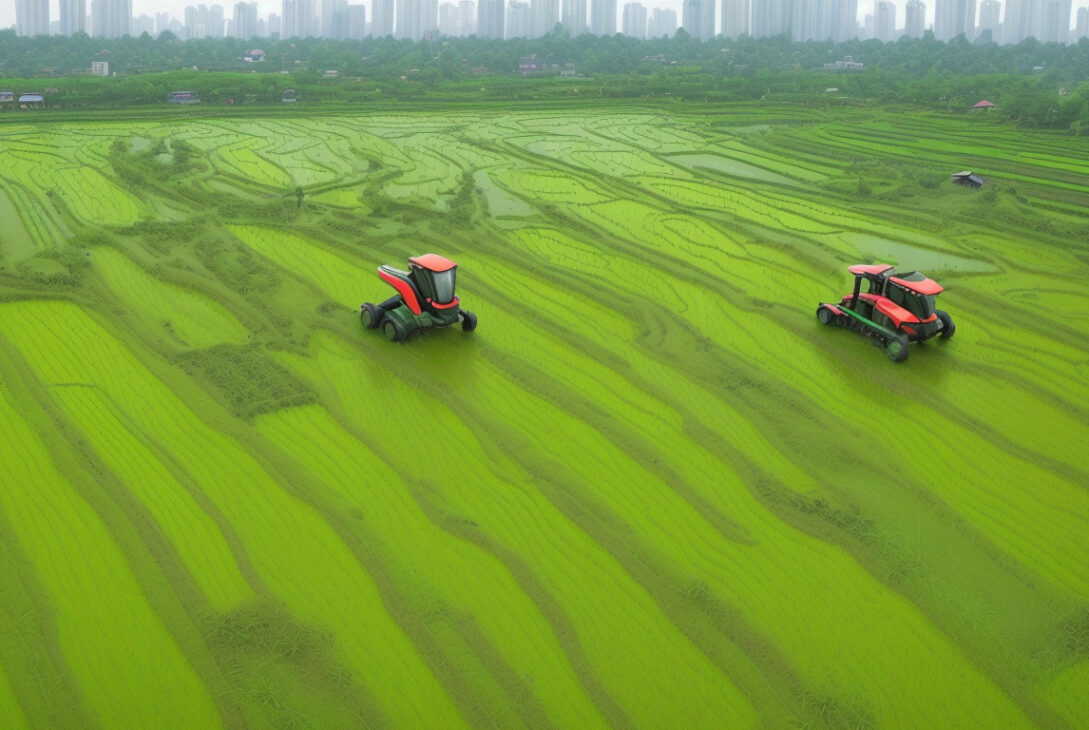Digital Technology: An Inevitable Trend in Hanoi’s Agricultural Production
Hanoi, October 8, 2025 — In recent years, Hanoi has been actively promoting the integration of digital technology in agriculture to modernize production and ensure sustainability. The city is embracing innovations such as artificial intelligence (AI), blockchain technology, remote sensing, and eGAP (electronic Good Agricultural Practices) solutions. These technologies play a crucial role in managing and tracing the origins of crops, livestock, aquatic products, and supply chains, thereby improving transparency and product quality.
Supporting Farmers through Digital Platforms
Hanoi’s authorities have also focused on supporting farmers by facilitating the entry of agricultural products onto e-commerce platforms. This move not only ensures product origin transparency but also helps stimulate the rural digital economy, providing farmers with wider market access.
Model Cooperatives Leading the Way
A prime example of digital agriculture adoption is the Chuc Son Clean Fruit and Vegetable Cooperative in Chuong My ward. Spanning nearly 18 hectares—12.8 hectares certified under VietGAP standards and 5 hectares under GlobalGAP standards—the cooperative exemplifies sustainable, technology-driven farming. Director Hoang Van Tham highlighted investments in advanced greenhouse systems, automatic drip irrigation, and an iMentos 3.3AG weather monitoring station. This equipment provides real-time updates on humidity, temperature, rainfall, and wind, enabling farmers to proactively respond to climate changes and optimize cultivation, irrigation, and fertilization.
The cooperative utilizes FACEFARM software to manage the full production process meticulously. Each vegetable bed carries a QR code ensuring traceability and transparency, which complies with stringent consumer standards. Processing and packaging stages adhere to HACCP (Hazard Analysis Critical Control Point) standards to guarantee food safety and hygiene. Thanks to digitalization, the cooperative efficiently monitors product quality and supplies about three tonnes of vegetables daily to supermarkets, convenience stores, and collective kitchens, generating annual revenues between 10 and 13 billion VND (approximately 380,000 to 493,000 USD).
Advancing Orchid Cultivation with Industry 4.0 Technology
Similarly, Me Linh F-Farm is a pioneer in applying high-tech digital solutions to orchid cultivation. Owner Nguyen Thi Thuy shared that the farm employs a closed orchid care system based on Israel’s Industry 4.0 technology, including controlled greenhouses and net houses. Thanks to automated irrigation, propagation, and lighting adjustment systems, the farm enhances flower quality, reduces labor needs, and optimizes production.
Environmental sensors, automatic drip irrigation, and continuous cooling and ventilation help maintain ideal growing conditions for over 50,000 orchid plants, especially during the summer. These innovations reduce weather-related risks and improve production efficiency.
Expanding High-Tech Agriculture in Hanoi
According to the Hanoi Department of Agriculture and Environment, implementation of Programme No. 07-CTr/TU, enacted in March 2021, has resulted in 406 high-tech agricultural production models across the city. These include 262 in crop cultivation, 119 in animal husbandry, and 25 in aquaculture, marking significant strides toward technological advancement.
Challenges and Future Directions
Despite promising progress, the overall application of digital technology in Hanoi’s agriculture remains limited. Challenges such as small-scale and fragmented farming, high capital investment requirements, limited financial resources, and inconsistent policy support have resulted in scattered investments that only cover parts of the agricultural value chain.
To overcome these hurdles, the municipal People’s Committee issued Plan No. 73/KH-UBND on March 12, 2025, targeting the development of high-tech agriculture through 2030. The plan emphasizes modernizing agricultural production, enhancing efficiency, and shifting toward sustainable farming through digital transformation and technologies like AI and the Internet of Things (IoT).
Ta Van Tuong, Deputy Director of Hanoi’s Department of Agriculture and Environment, stated that the department will continue collaborating with relevant bodies to help cooperatives and enterprises digitize agricultural processes. Initiatives include creating transparent management systems and establishing automated monitoring networks to track, forecast, and adjust production in response to environmental and climatic conditions.
Moreover, Hanoi aims to build extensive databases on crops, livestock, and aquatic products to facilitate large-scale, safe, and circular production zones. This initiative will add value to Hanoi’s agricultural products and foster a modern agricultural economy driven by circular, green, and smart growth models.
The city’s concerted efforts mark a significant step toward integrating digital technology into agriculture, ensuring Hanoi remains at the forefront of sustainable and innovative farming in Vietnam.
—
Vietnam News Agency (VNA) / Vietnam Pictorial (VNP)










